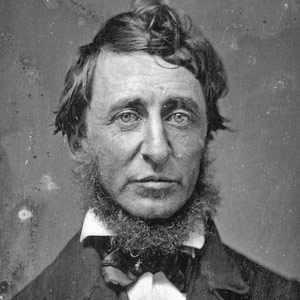
Henry David Thoreau (1817 – 1862) was an American essayist, poet, and philosopher from Concord, Massachusetts. A leading transcendentalist, Thoreau is best known for his book Walden, a reflection upon simple living in natural surroundings, and his essay Civil Disobedience, an argument for disobedience to an unjust state. Thoreau’s books, articles, essays, journals, and poetry amount to more than 20 volumes. Among his lasting contributions are his writings on natural history and philosophy.

Quotes by Henry David Thoreau…
If I were to discover that a certain kind of stone by the pond-shore was affected, say partially disintegrated, buy a particular natural sound, as of a bird or insect, I see that one could not be completely described without describing other. I am that rock by the pond side.
I know of no more encouraging fact than the unquestionable ability of a man to elevate his life by a conscious endeavour. It is something to be able to paint a particular picture, or to carve a statue, and so to make a few objects beautiful; but it is far more glorious to carve and paint the very atmosphere and medium through which we look, which morally we can do. To affect the quality of the day, that is the highest of art.
I have found that no exertion of the legs can bring two minds much nearer to one another.
With thinking we may be beside ourselves in a sane sense. By a conscious effort of the mind we can stand aloof from actions and their consequences, and all things, good and bad, go by us like a torrent.
If you have built castles in the air, your work need not be lost; that is where they should be. Now put the foundations under them.
Public opinion is a weak tyrant compared with our own private opinion. What a man thinks of himself, that it is which determines, or rather indicates, his fate.
Money is not required to buy one necessity of the soul.
Heaven is under our feet as well as over our heads.
Man is the slave and prisoner of his own opinion of himself.
The millions are awake enough for physical labor; but only one in a million is awake enough for effective intellectual exertion, only one in a hundred millions to a poetic or divine life. To be awake is to be alive… We must learn to reawaken and keep ourselves awake, not by mechanical aids, but by an infinite expectation of the dawn.
